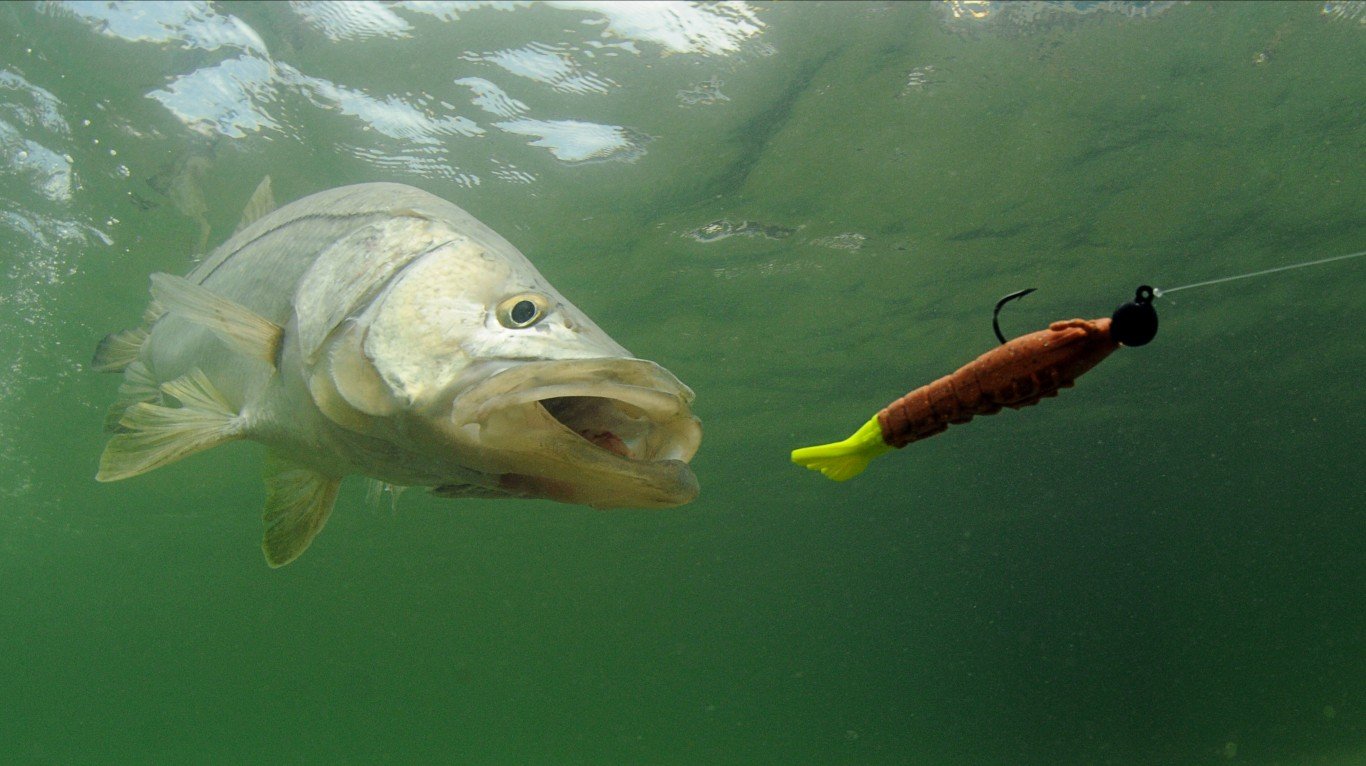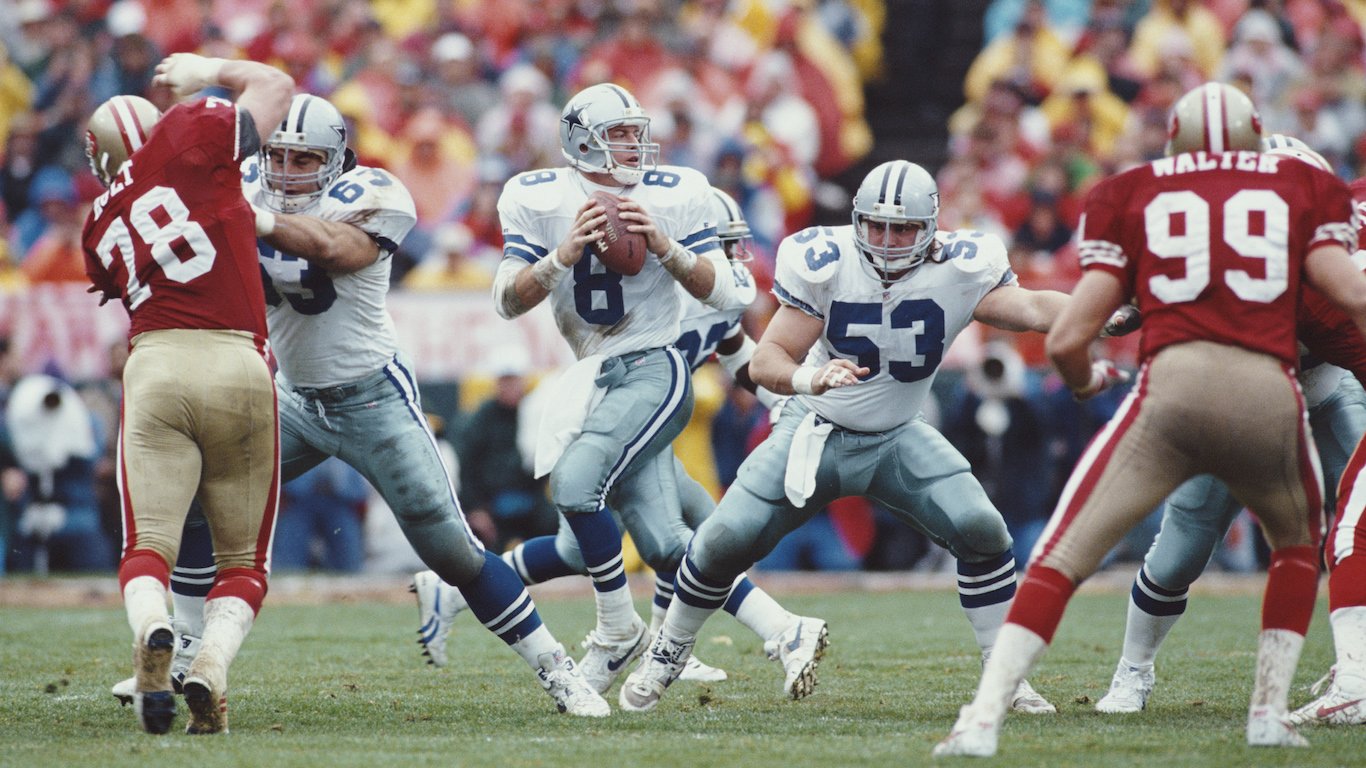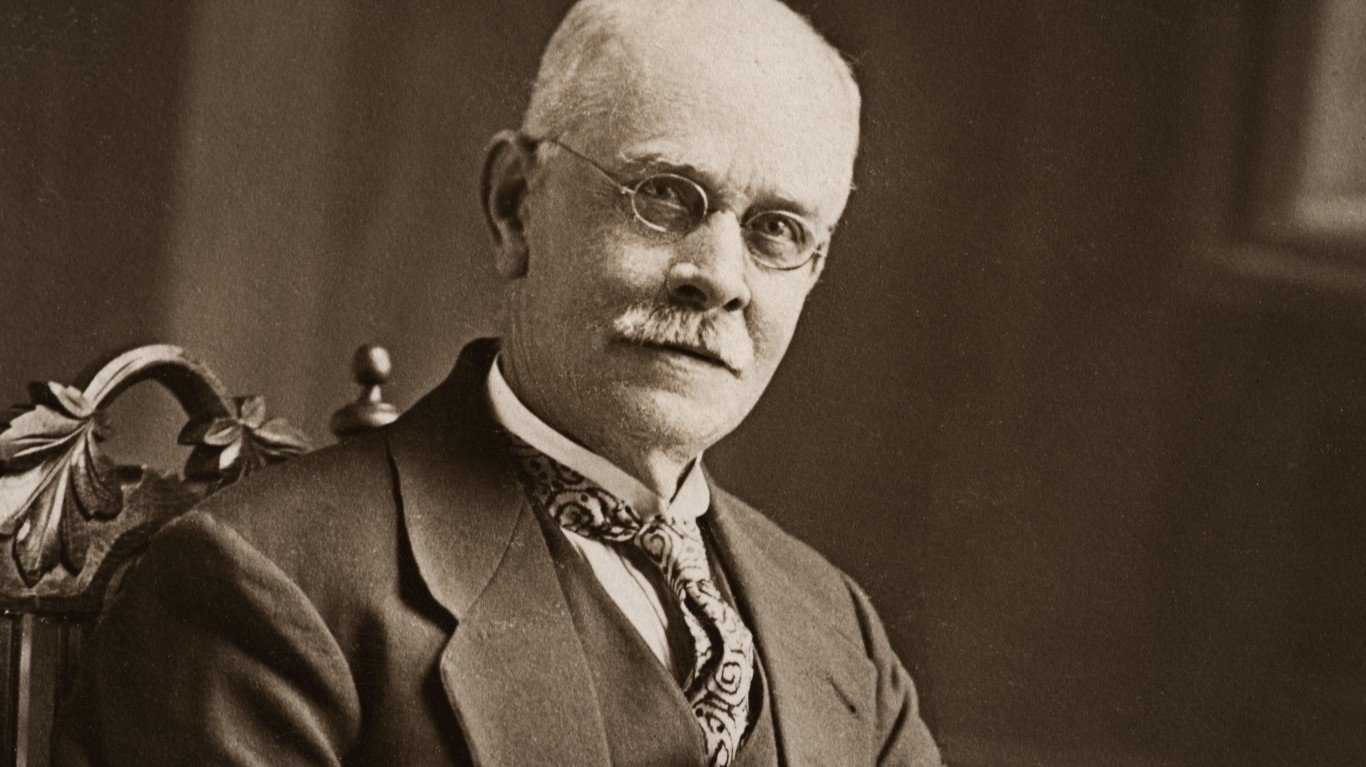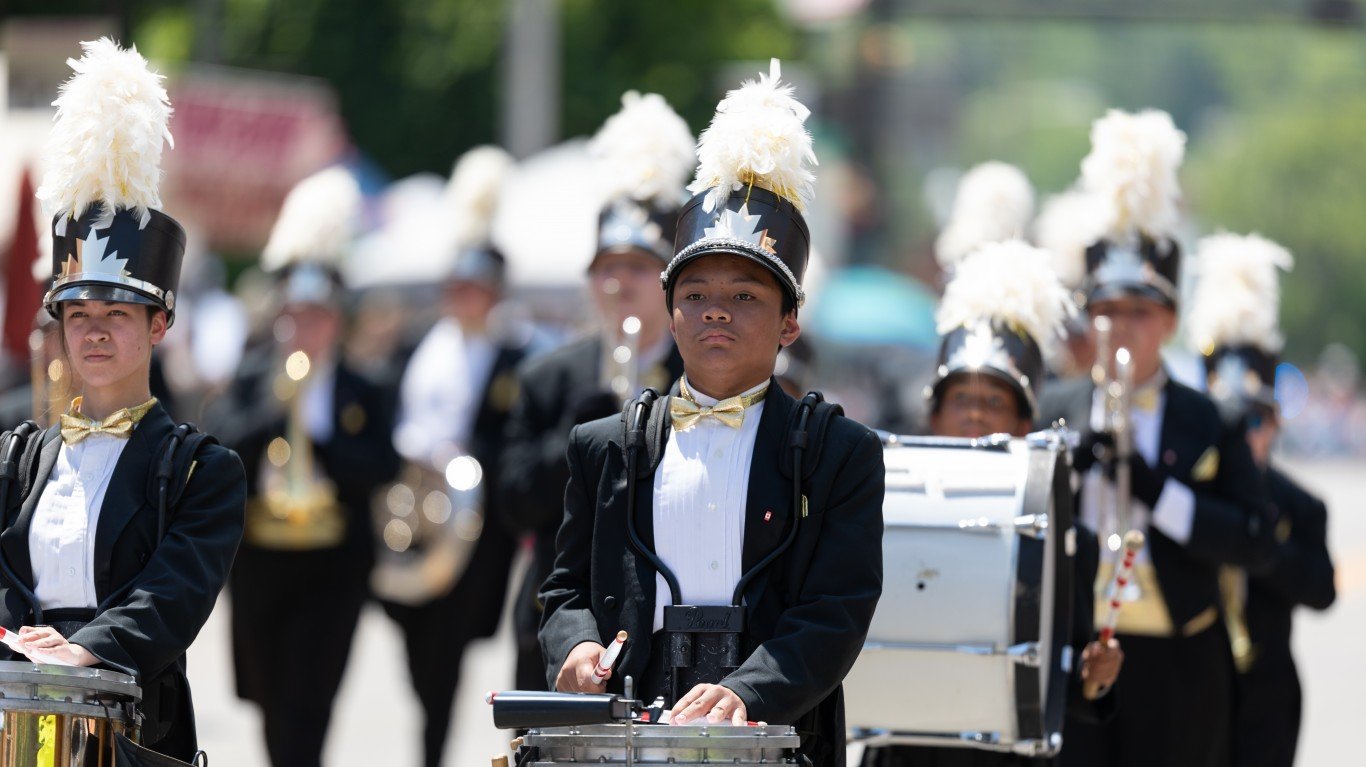During the coronavirus shutdown many people stuck at home have taken to reading and studying new subjects to pass the time. This has given them an opportunity to improve their vocabularies and their grammar.
There are lots of words people get wrong. With homophones — words that have the same pronunciation but different meanings – mistakes are only obvious when written down. Some words are very easily confused, such as ascent and assent, or principle and principal. These are 50 commonly misspelled words in English.
To compile a list of words people often use incorrectly, 24/7 Tempo reviewed numerous articles on the subject as well as style guides and dictionaries, such as dictionary.com.
Sometimes words are qualified needlessly. People often say “very unique,” but strictly speaking something is either unique, which means one of a kind, or not. There aren’t degrees of uniqueness. People also throw around the word “literally” without too much thought, as in “I literally died of embarrassment.” Literally means actually, but people often use it when they mean figuratively, which is something entirely different.
Incidentally, epidemic and pandemic are often used interchangeably, but have somewhat different meanings. An epidemic is a disease that affects a large number of people within a population or region, while a pandemic is an epidemic that’s become widespread. In other words, an epidemic is a pandemic that travels, which is something few of us can do for now.
We shouldn’t be too judgmental, though. Words evolve and take on new meanings and are used differently in different places. Here are 36 old words we use today but with new meanings.

1. Accept and Except
These words are sometimes confused, but can have opposite meanings depending on the context. To accept means to receive something willingly, whereas to except something means to leave it out.

2. Aisle and Isle
An aisle is a walkway between sections, as in a theater or plane. An isle is a small island. To further confuse matters, both sound like the contraction of I and will: I’ll.

3. Appraise and Apprise
To appraise means to estimate the value of or assess. To apprise means to inform. As in, he was apprised of the house appraisal before making an offer.

4. Assent and Ascent
These words have the same pronunciation but quite different meanings. Assent means agreement and is also a verb. Ascent means climb.

5. Allusion and Illusion
An allusion is a reference; an illusion is something imagined or deceptive.

6. Amused and Bemused
This is an interesting pair because bemused originally meant bewildered or confused — not in an amusing sense. Bemused, however, sounds so much like amused and has been used mistakenly as a synonym so often that some dictionaries have come to accept this additional meaning.

7. Balmy and Barmy
Balmy means mild and refreshing, and is often used to describe weather or a climate. Barmy is British slang for crazy or foolish.

8. Aural and Oral
These two have related meanings: aural refers to the ear or hearing, and oral to the mouth or speaking.

9. Baited and Bated
“With bated breath” means nervously or anxiously; bated is hardly ever used in any other context, and people often wrongly spell it with an “i.” Baited is the past principle of bait, which means to tease or put a trap.

10. Bear and Bare
People often confuse bear and bare. Although they are short and simple words, they mean very different things — and each has more than one meaning. Bear can mean carry or endure, bear with someone, or even give birth. It’s also a furry animal. As an adjective, bare can mean uncovered or simple; as a verb it means to expose.

11. Bazaar and Bizarre
A bazaar is a market. A bizarre bazaar is a strange market indeed. The former has Persian roots, the latter Spanish.

12. Berth and Birth
These words are pronounced the same but have very different meanings. A berth is where a ship moors or a passenger sleeps. Birth can be used as a noun, adjective, and verb in relation to having offspring.

13. Biannual and Biennial
These words are easily confused. Biannual means twice a year, while biennial means every two years.

14. Bloc and Block
Bloc means a group of nations or people united by a common interest. Block has a number of meanings, including prevent, as in block a bloc from working together.

15. Canvas and Canvass
Canvas is something you paint on or sleep under. To canvass means to solicit votes or support. One “s” makes all the difference.

16. Capitol and Capital
Congress meets in the United States Capitol, one of the most recognizable buildings in the world, which is located in the United States capital, Washington, D.C. — and people often mix up the two.

17. Cite, Sight and Site
These three words are pronounced the same way but should be cited differently. Cite means quote or refer to; sight means vision or view; and site means place or location, and is also short for website.

18. Compliment and Complement
Compliment is a verb and noun meaning praise. Complement means goes well with. “My compliments to the chef. The eggs complement the bacon.

19. Comprise and Compose
These two words have different meanings depending on whether you are talking about the whole or the parts: “The pizza is composed of dough and cheese and comprises eight slices.” (Some people say “comprised of,” although the “of” is redundant.

20. Continual and Continuous
These words look very similar and are used interchangeably, but there’s an important difference — continual means with interruptions, continuous means without interruptions.

21. Counsel and Council
Counsel means advice or the person giving it, whereas a council is a group of people that advises or decides on various matters.

22. Criteria and Criterion
The difference is simple — criteria is the plural of criterion, although the singular is falling out of use in everyday English.

23. Desert and Dessert
People often confuse desert, the sandy place, and dessert, the sweet treat. The difference is only an “s,” but with desert, the first syllable is stressed, and with dessert, the second.

24. Discreet and Discrete
Discreet means unobtrusive, low key, careful, whereas discrete means separate, individual. You can have discreet and discrete conversations.

25. Elicit and Illicit
Elicit means to draw out or evoke. You wouldn’t elicit praise for something that was illicit, however, as that means illegal or unapproved.

26. Endemic and Epidemic
Endemic means something prevalent in a particular area or among a people, and can refer to plants or animals or something less tangible, such as poverty. An epidemic is a disease that affects a large number of people within a community, population, or region.

27. Disinterested and Uninterested
These words are often used interchangeably, but disinterested means neutral or not having a stake in the outcome, whereas uninterested means you just don’t care.

28. Ensure and Insure
To ensure means to make sure something happens; to insure means to cover something with an insurance policy, which almost always means you don’t want it to happen.

29. Faint and Feint
As a verb, to faint means to pass out, while to feint means to fake something, such as an attack. As an adjective, faint means slight or imperceptible.

30. Fewer and Less
It’s not a super strict rule, but fewer should be used for things that can be counted, while less should be used for things that can’t be counted or don’t have a plural, like mass nouns such as salt or money. Fewer grammar mistakes mean less embarrassment.

31. Flaunt and Flout
To flaunt means to show off, whereas to flout means to openly disregard a rule. You could flout convention by flaunting your wealth.

32. Flounder and Founder
To flounder means to struggle whereas to founder means to sink. Of course, flounder is also a fish, and they’re pretty good swimmers, so that might help you remember the distinction between the two. However, founder can also mean someone who builds something up, which is almost the opposite of to sink.

33. Forbear and Forebear
Forbear is a verb meaning to refrain from something. Forebear is a noun meaning ancestor. You wouldn’t be reading this if your forebears had decided to forbear.

34. Gaff and Gaffe
A gaff is a hook for handling fish, while a gaffe is a social misstep or faux pas.

35. Immanent and Imminent
Immanent means inherent and is more likely to be encountered in a discussion about philosophy or theology than in everyday conversation. Imminent means impending or about to happen.

36. Learn and Teach
People sometimes confuse learn and teach, as New York Yankees great Yogi Berra did when he said, “Bill Dickey is learning me his experience.” In standard English, Dickey was teaching and Berra was learning.

37. Literally
Literally literally means actually, but people often use it when they mean figuratively, which is something entirely different. We’ve all heard statements like, “I literally laughed my head off,” or “I literally died with embarrassment.”

38. Lose and Loose
Lose means suffer a loss or defeat or misplace something. Loose as a verb means to set free and as an adjective means unrestrained.

39. Nuclear
Nuclear is incorrectly pronounced “nucular” by some people, including former President George W. Bush and oafish cartoon character Homer Simpson.

40. Peak and Peek and Pique
A peak is the top of something, such as a mountain. To peek means to look briefly or glance at. Pique can mean to stimulate interest, but it can also mean to upset somebody. We hope we have piqued your interest and not piqued you.

41. Perpetrate and Perpetuate
Perpetrate means to commit or carry out something, such as a crime. Perpetuate means to prolong the existence of, possibly forever.

42. Precede and Proceed
These words are pronounced differently but are sometimes confused. Precede means to go before, while proceed means to go forward. Those definitions sound similar so proceed with caution!

43. Premier and Premiere
As an adjective, premier means first or most prominent. As a noun, it can be a synonym for prime minister. A premiere is the first time a movie or play is shown. A premier could attend a premiere.

44. Prescribe and Proscribe
These look-alike words can have opposite meanings. To prescribe means to order or recommend something, as doctors might do. To proscribe means to forbid something, as dictators might do.

45. Principle and Principal
A principle is a fundamental idea or rule, such as a principle of justice. Principal as an adjective means the most important as in, the principal principle. Principal as a noun means the head of an organization or institution, such as a company or school. The principal should be principled.

46. Rain and Rein and Reign
These words are sometimes mixed up. Rain falls from the sky; a rein is used to control a horse; and a monarch reigns over a country.

47. Than and Then
Than is used with comparisons, as in bigger than. Then means at that time, or next.

48. Their and There
Their means belonging to them. There means in that place (as distinct from here). The students left their books there.

49. Who’s and Whose
Who’s is a contraction of who is, as in “Who’s on third?” Whose is the possessive case of who or which, as in “Whose broad stripes and bright stars….”

50. Unique
People often say “very unique,” but strictly speaking nothing is very unique. Something is either unique, which means one of a kind, or not — there aren’t degrees of uniqueness.
